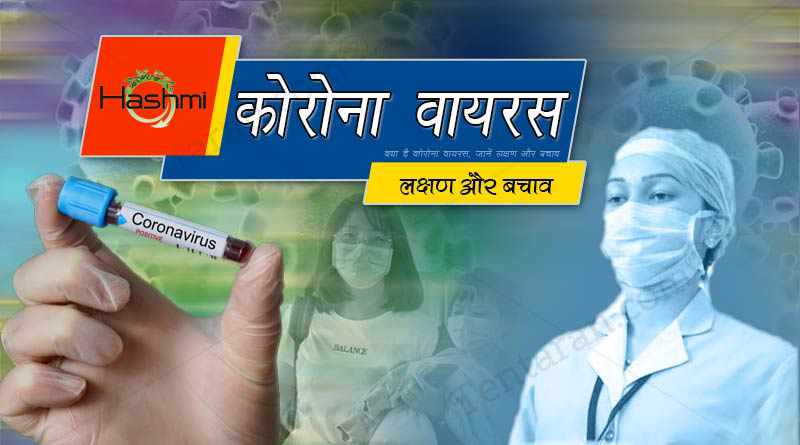What are the symptoms of corona virus and how you can prevent

Coronaviruses are a family of viruses that can cause illnesses such as the common cold, severe acute respiratory syndrome (SARS) and Middle East respiratory syndrome (MERS). In 2019 a new coronavirus was identified as the cause of an outbreak of a disease that originated in China.
The virus is now known as severe acute respiratory syndrome coronavirus 2 (SARS-CoV-2). The disease it causes is called coronavirus disease 2019 (Covid-19). In March 2020, the World Health Organization (WHO) declared the Covid-19 outbreak a pandemic.
US Public health groups, including the Centers for Disease Control and Prevention (CDC) and the WHO, are monitoring the pandemic and posting updates on their websites. These groups have also issued recommendations for disease prevention and treatment.
Symptom :-
Signs and symptoms of coronavirus disease 2019 (Covid-19) may appear two to 14 days after exposure. This time after exposure and before symptoms is called the incubation period. Common signs and symptoms may include-
- fever
- Cough
- Tiredness
Other symptoms may include:-
- shortness of breath or difficulty breathing
- muscle aches
- chills
- Sore throat
- Headache
- Pain in chest
This list is not all inclusive. Other less common symptoms have been reported, such as nausea, vomiting and diarrhea. Children have similar symptoms to adults and generally have a mild illness.
The severity of Covid-19 symptoms can range from very mild to severe. Some people may have only a few symptoms and none at all. People who are older or have chronic medical conditions, such as heart disease, lung disease, diabetes, severe obesity, chronic kidney or liver disease, or who have compromised immune systems, may be at higher risk of serious illness. . This is seen with other respiratory illnesses, such as influenza.
Some people may experience worsening of symptoms, such as worsening of breathlessness and pneumonia, about a week after symptoms begin.
when to see a doctor
If you have BTP-19 symptoms or have been in contact with someone diagnosed with BPTPC-19, contact your doctor or clinic immediately for medical advice. Tell your health care team about your symptoms and potential risk before your appointment.
If you have emergency Covid-19 signs and symptoms, seek care immediately. Emergency signs and symptoms may include-
- difficulty breathing
- persistent chest pain or pressure
- blue lips or face
If you have signs or symptoms of Covid-19, contact your doctor or clinic for guidance. Tell your doctor if you have any other chronic medical conditions, such as heart disease or lung disease. During a pandemic, it is important to ensure that health care is available to those in greatest need.
Cause :-
Infection with the new coronavirus (severe acute respiratory syndrome coronavirus 2, or (SARS-CoV-2)) causes the coronavirus disease 2019 (Covid-19).
The virus spreads easily between people and more is being discovered about how it spreads over time. It has been found that there is person-to-person contact (within about 6 feet or 2 meters). The virus is spread by respiratory droplets when a person coughs, sneezes or talks with the virus, or if a person touches a surface with the virus on it and then touches their mouth, nose or eyes. spreads out.
Risk :-
Risk factors for Covid-19 include –
Recent travel or residence from an area with ongoing community spread of Covid-19 as determined by CDC or WHO
close contact (6 feet, or 2 meters) with someone with Covid-19 or coughing or sneezing on an infected person
Complications :-
Although most people with BTP-19 have mild to moderate symptoms, the disease can cause serious medical complications and cause death in some people. Older adults or people with existing chronic medical conditions are at higher risk of becoming seriously ill with BTP-19
- Complications may include-
- Pneumonia and trouble breathing
- multiple organ failure
- heart problems
- blood clots
- acute kidney injury
- Additional viral and bacterial infections
Redressal :-
Although there is no vaccine available to prevent Covid-19, you can take steps to reduce your risk of infection. WHO and CDC recommend following these precautions to avoid Covid-19 –
- Avoid large events and mass gatherings.
- Avoid close contact (within 6 feet or 2 meters) of anyone who is sick or has symptoms.
- Stay at home as much as possible and keep a distance (within about 6 feet or 2 meters) between yourself and others if COVID-19 is spreading in your community, especially if you are at high risk of serious illness. Keep in mind that some people can have Covid-19 and spread it to others, even if they don’t. Still be careful.
